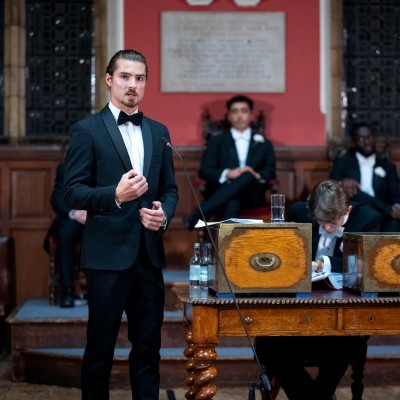|
In the crossroads of North Africa, Europe and the Middle East, Malta is often the first point of contact for migrants seeking a better life. The 2011 Libyan uprising, the Syrian Civil War and the Eritrean-Ethiopian border conflict have all been major causes for the displacement of millions.
The Mediterranean crossing to reach Europe is the ‘world’s deadliest' for migrants, with most departing from Libya, after the less dangerous path from Turkey to Greece was shut in 2016. En route to Libya, migrants must first cross the desert, journeying from Sudan. Once there, they are then faced with the risk of rape and torture. To secure a place on the rickety boats, high fees must be paid to smugglers, ranging from $750 to $3500 per person. With significant amounts of refugees arriving in Malta since 2002, the European microstate has been criticised for its treatment of those in need. As migrants undertake an immensely dangerous journey, Malta’s actions - and inactions - have led to the deaths of thousands. Human rights come first As part of this examination of the refugee situation in Malta, I conducted an interview with the Maltese lawyer Dr Katrine Camilleri. Dr Camilleri is the Director of the Jesuit Refugee Service (JRS) Malta and won the prestigious Nansen Refugee Award in 2007, previous winners of which include Angela Merkel and Eleanor Roosevelt. Upon being asked to comment on Malta’s obligation to human rights when confronted with refugees, Dr Camilleri firstly acknowledged the magnitude of the question. “That’s a very big question,” she said. In an attempt to put it succinctly, Dr Camilleri stated that the obligation is “to provide protection to those who need it.” Breaking this down, she continued, “We have obligations to [them] not only because they are refugees, but also because they are human beings in distress out at sea.” Four-year-old Syrian refugee Loujin died of thirst last September after distress calls were ignored by the Maltese authorities. It is a solemn reminder that 2022’s 1,300+ missing and dead are not merely a statistic. A vigil was held for Loujin in Malta, at which Archbishop Charles Scicluna called for change: “We are here to say, ‘not in our name’ and that we expect better.” Dr Camilleri believes our obligation starts with saving lives, but does not end there. Once refugees arrive in Malta, it is also the duty of the country to treat them with dignity and ensure that the requisite standards of procedure are met. Dr Camilleri stressed the need to uphold rights such as family reunification and healthcare. Malta as part of the EU My next question to Dr Camilleri was, as the previous one, complex and without a straightforward answer: “Malta is a tiny island that cannot take the whole weight of arriving refugees. How can we make sure that lives are not lost, while keeping Malta’s size in mind?” Dr Camilleri recognised that Malta’s size must be considered, acknowledging that “There is the reality of limited resources.” However, she made it clear that “Malta has clear legal obligations.” For Dr Camilleri, it is Malta’s responsibility to uphold basic human rights and protect those in distress. She also raised the important point that Malta is part of a bigger block: the European Union. Malta’s position as a member state “should…be taken into consideration,” Dr Camilleri stated, though, there was a certain amount of hesitancy in her voice, as though she did not believe the EU to be doing enough. “Malta is managing one of the borders of the European Union so…when people arrive they should not only be Malta’s responsibility.” Action from the EU is necessary “if we are a Union in anything but name,” and Dr Camilleri buttressed this by stressing the fact that “one of the values [that the European Union is founded on] is solidarity.” Earlier this month, officials from five EU Mediterranean states - known as MED5 - met in Malta’s capital city to discuss immigration issues. The ministers seek a stricter approach in the EU, demanding that distributing approved migrants across member states be made compulsory. This meeting occurred just a few days after a tragic migrant boat crash off the coast of Italy, which killed at least 59 people, including children. Malta and Italy When asked about the way in which the number of annual refugee arrivals to Malta often fluctuates, Dr Camilleri identified the situation to be multifaceted. “The drops are not based only on what Malta does, but also on the actions of other states in our region.” Dr Camilleri highlighted how the politics of Malta’s close neighbour, Italy, affects the amount of refugees arriving in Malta. She outlined the way in which Italy’s 2010 pushback policy - a product of the new alliance between Libya and Italy and a breach of international law - caused a major decline in the amount of boat arrivals in Malta. Dr Camilleri explained the trends further: “Between 2014 and 2018…although there were a lot of arrivals to Europe through the Mediterranean, Italy was absorbing - so to speak - all of [them].” “2018 was when there was a change of government in Italy and boats started arriving again…From 2020 onwards there has been a steady decrease…and this year Malta has only taken…individuals who were medically evacuated.” The Maltese Attitude Discussing the differing attitudes towards refugees amongst the Maltese, Dr Camilleri highlighted the wide range of viewpoints that are present. She explained that it is frequent to encounter “…hostility, bigotry, racism, xenophobia”, not only manifest in comments (in the media or otherwise), but in “harmful actions” too. However, Dr Camilleri made it clear that “there are a lot of people who support refugees.” She shed positive light on refugee awareness programmes that take place at schools. JRS Malta does great work running such programmes, in an attempt to educate and reduce stigma. See the JRS Malta website for more information regarding their important mission. Concluding Thoughts Each migrant is a human person, with a right to life. This is not merely international law, but a moral and ethical truth, purportedly recognised by Malta and the EU as a whole. However, as reported by Times of Malta, some 413 distressed boats in Malta’s Region received no aid in 2022. A mere three boats were helped by the AFM, leaving 20,000 people alone. Admittedly, the difficulty of the situation cannot be understated. Practicality must be maintained, without denying basic human rights. Europe will not - and cannot - take all migrants. Therefore, action must be taken at both ends. Importantly, there is the necessity to improve the conditions of Libyan migration centres, where humans are trafficked and systematically abused, and which have been likened to ‘concentration camps’ by Pope Francis. Further, fairly considering the country's small size, Malta cannot be expected to take the full ‘burden’ of rescuing and integrating migrants. While this does not relieve any of Malta’s responsibilities to save lives, it does mean that more help is required. Though refugees have certainly been relocated to mainland Europe in recent years, it is not sufficient. EU inaction is leading to restlessness amongst countries at the edges of Europe. The fact remains: Malta cannot let people die at its gates. Europe must present a united front, acting in solidarity for the sake of each human life.
1 Comment
|


 RSS Feed
RSS Feed

